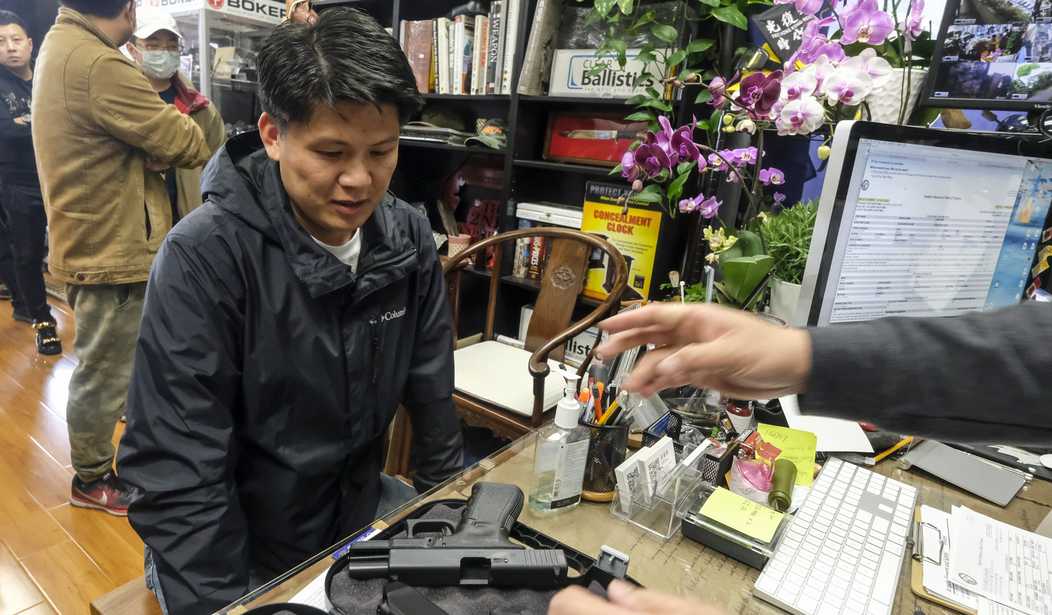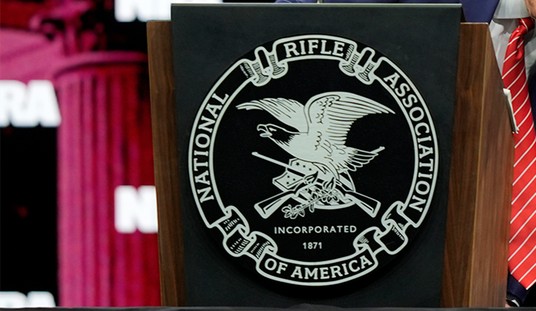Editors Note: The waiting period in New Mexico is 7 days, not 10 as we originally reported. Bearing Arms regrets the error.
Original story follows:
Though New Mexico Governor Michelle Lujan Grisham failed to get the 14-day waiting period on gun transfers she was asking for, lawmakers in Santa Fe did approve a 7-day waiting period earlier this year. Now a federal judge in Albuquerque is allowing that waiting period to be enforced; rejecting a request for an injunction sought by the NRA and two individual gun owners in the state.
In a ruling Monday, Albuquerque-based U.S. District Court Judge James Browning denied the NRA's request for a restraining order or injunction that would block the extended waiting period.
Democratic state lawmakers enacted the restrictions earlier this year in hopes of ensuring more time for the completion of federal background checks on gun buyers.
Only three states have longer waiting periods — California, Hawaii and Washington, along with the District of Columbia — that range up to 14 days, according to the Giffords Law Center to Prevent Gun Violence. Rhode Island also has a seven-day wait.
“The defendants adduce significant evidence that waiting period laws may help reduce this tidal wave of gun violence,” Browning said in a ruling of more than 100 pages.
"May" help, not "will" help. And of course, under the text, history, and tradition test laid out in Bruen, the motivation behind a particular gun control measure doesn't matter. What's important is whether a modern gun regulation comports with the text of the Second Amendment and the national tradition of the right to keep and bear arms.
Though waiting periods are an entirely a creation of modern-day gun control advocates, Browning concluded that New Mexico's law is still analogous to what he called earlier restrictions on the commercial sale of firearms.
The principle underpinning the founding-era tradition of commercial sale restrictions was a concern that certain individuals among the groups that the laws targeted would use purchased firearms to do harm in society. See Bellesiles, supra, at 576 (explaining how colonial lawmakers, “fearing the consequences of unregulated access to firearms and munitions,” “sought to regulate the . . . sale . . . of firearms and munitions”); Robert J. Spitzer, Guns Across America 52 (2015) (“Gun laws aimed at barring [those] deemed dangerous to society from possessing firearms focused early in the country’s history on Native Americans . . . .”); Bellesiles, supra, at 576 (“[S]lave uprisings -- real and imagined -- persuaded colonial legislatures that blacks as a group, slave or free, should not be allowed to own firearms.”); Spitzer 2017, supra, at 57 (explaining that founding-era laws prohibiting individuals who expressed seditious opinions from buying firearms out of a concern that such individuals would take up arms against the Nation).
Our Nation’s historical tradition of firearm regulations includes commercial regulations dating from the mid-eighteenth century to the mid-nineteenth century that restricted and prohibited the sale of arms to large groups of the population out of a concern that certain individuals within the population that the regulations targeted would use firearms they purchased to do harm in society.
Yeah, Browning actually cited the discredited historian Michael Bellesiles in his decision. That's not a good look for the judge, but to make matters worse he cited laws prohibiting Native Americans, freedmen, and slaves from possessing arms; laws that would clearly be unconstitutional today.
They're also not analogous to the waiting period law in question. When those 18th and 19th century laws were adopted, those "large groups of the population" weren't considered a part of the political community. They weren't seen as among "the people" who possess the right to keep and bear arms.
It's a very different story today, thankfully, and contrary to Browning's assertion, those anachronistic laws aren't even remotely similar to New Mexico's waiting period. The 7-day wait doesn't restrict or prohibit the possession firearms to a particular subsection of the population. It forces every gun owner to needlessly wait more than a week before taking possession of their newly-purchased firearm, even after they've passed a background check.
Browning's ruling is so squirrelly that I believe there's a solid chance it will be overturned by the Tenth Circuit on appeal. Unfortunately, for the time being New Mexico's waiting period will remain in effect and enforced across the state... at least when it comes to lawful gun owners. Violent criminals obtaining their guns illegally will simply ignore the statute, just as they ignore the laws against assault, home invasion, and homicide.









Join the conversation as a VIP Member